Get free scan and check if your device is infected.
Remove it nowTo use full-featured product, you have to purchase a license for Combo Cleaner. Seven days free trial available. Combo Cleaner is owned and operated by RCS LT, the parent company of PCRisk.com.
What is Antivirus .NET?
This rogue program is derived from the same family as Antivirus Action and Antivirus Scan. This fake software is distributed through various Trojans, and when installed on your computer, the fake scanner will block legitimate programs.
The creators of this rogue program also use other methods to propagate it, so be careful when using Facebook, Twitter, and opening attachments within your emails. When installed on your computer, it starts automatically on each Windows start-up and displays various security warnings to trick people into purchasing a full version.
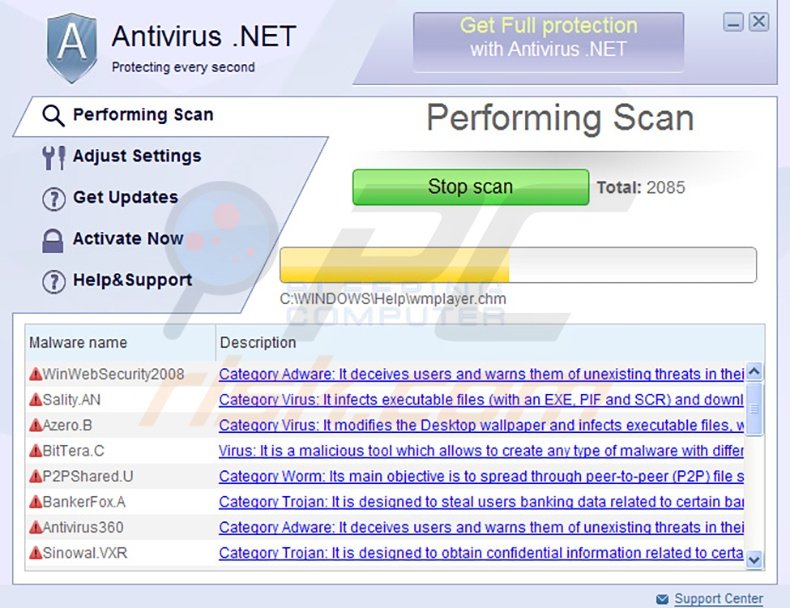
Do not fall for this trick. This program is useless and designed only to steal money from you.
If you have already purchased the program, you should contact your credit card company and explain that you have been tricked into purchasing fake security software. In certain cases, it is a wise precaution to block your credit card.
Hackers may use your banking information for stealing more money from you. Bear in mind that all messages displayed by Antivirus .NET are fake.
This software will attempt to trick you into purchasing a full version. You should remove Antivirus .NET from your computer as soon as possible.
This program is a malicious application that generates fake processes with the intention of selling a license to remove security threats. These threats do not exist on your PC.
Internet criminals behind this fake software make money from unsuspecting computer users who fall for their trickery. To further scare you into believing that your PC is in danger of security infections, Antivirus .NET generates multiple pop-ups stating that your computer is being attacked by viruses.
To protect itself from removal, this rogue program will block your Internet access and disable certain default Windows functions. Use the removal guide provided to help you remove Antivirus .NET from your computer.
The following fake security warning messages are generated by Antivirus .NET:
“Windows Security alert. Windows reports that your computer is infected. Antivirus software helps to protect your computer against viruses and other security threats. Click here to scan your computer. Your system might be at risk now.”
“INFILTRATION ALERT. Your computer is being attacked by an Internet Virus. It could be a password-stealing attack, Trojan Dropper, or similar.”
“Internet Explorer Warning – visiting this web site may harm your computer! Most likely causes: The website contains exploits that can launch a malicious code on your computer.”
“Suspicious network activity detected. There might be active spyware running on your computer.”
Instant automatic malware removal:
Manual threat removal might be a lengthy and complicated process that requires advanced IT skills. Combo Cleaner is a professional automatic malware removal tool that is recommended to get rid of malware. Download it by clicking the button below:
DOWNLOAD Combo CleanerBy downloading any software listed on this website you agree to our Privacy Policy and Terms of Use. To use full-featured product, you have to purchase a license for Combo Cleaner. 7 days free trial available. Combo Cleaner is owned and operated by RCS LT, the parent company of PCRisk.com.
Quick menu:
- What is Antivirus .NET?
- STEP 1. Remove Antivirus .NET using Safe Mode with Networking.
- STEP 2. Remove Antivirus .NET manually by deleting files and registry entries.
Antivirus .NET removal
DOWNLOAD remover for malware infections
Combo Cleaner checks if your computer is infected with malware. To use full-featured product, you have to purchase a license for Combo Cleaner. 7 days free trial available. Combo Cleaner is owned and operated by RCS LT, the parent company of PCRisk.com.
1. Start your computer in Safe Mode. Click Start, click Shut Down, click Restart, click OK.
During your computer starting process press the F8 key on your keyboard multiple times until you see the Windows Advanced Option menu, then select Safe Mode with Networking from the list.
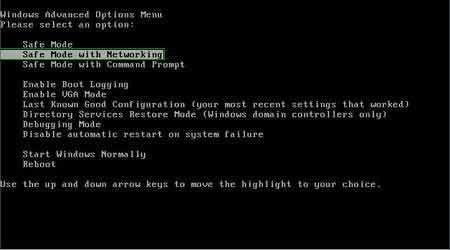
2. Open Internet Explorer, click Tools and select Internet Options. Select Connections, then click LAN settings, if 'Use a proxy server for your LAN' is checked, uncheck it and press OK.
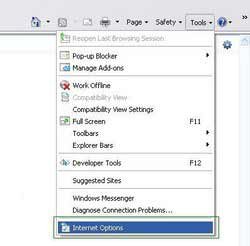
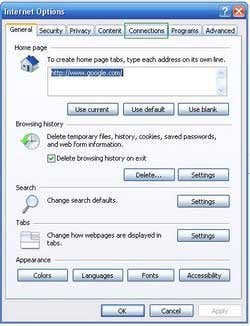
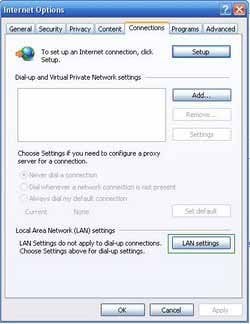
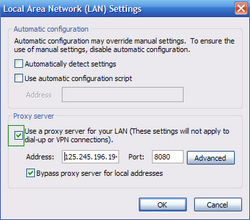
3 .Download HijackThis and save it to your desktop. Some malicious programs are able to block HijackThis, so when you click the download link, in the Save dialog, rename HijackThis.exe to iexplore.exe and only then click the Save button.
After saving the file to your desktop, double click it. In the main HijackThis window click the “Do a system scan only” button. Select the following entry (place a tick at the left of the entry):
O4 – HKLM\..\Run: [auwedfrg] c:\docume~1\user\locals~1\temp\akotqwert\bcgcihqazsw.exe
O4 – HKCU\..\Run: [auwedfrg] C:\Users\User\AppData\Local\akotqwert\bcgcihqazsw.exe
After selecting the required entry, click "Fix Checked". After this procedure you can close HijackThis and proceed to the next removal step.
(Bear in mind that rogue programs are continually mutating and thus entries in the HijackThis log may be different. In this case, look for the similar entries).
5. After this procedure, you should be able to access your desktop. You should now download legitimate anti-spyware software to fully remove Antivirus .NET from your computer.
DOWNLOAD remover for malware infections
Combo Cleaner checks if your computer is infected with malware. To use full-featured product, you have to purchase a license for Combo Cleaner. 7 days free trial available. Combo Cleaner is owned and operated by RCS LT, the parent company of PCRisk.com.
6. After downloading anti-spyware software, install it, update it, and then run a full system scan. Remove all infections found.
If you are unable to remove Antivirus .NET, you can use these manual removal instructions. Use them at your own risk, since if you do not have strong computer knowledge, you could harm your operating system.
Use them only if you are an experienced computer user. (Instructions on how to end processes, remove registry entries...)
End these Antivirus .NET processes:
[random].exe
Remove these Antivirus .NET registry entries:
HKEY_CURRENT_USER\Software\[random]
HKEY_CURRENT_USER\Software\Microsoft\Windows\CurrentVersion\Run “[random].exe”
Delete these Antivirus .NET files:
%Temp%\[random]\
%Temp%\[random]\[random].exe
Summary:
The fake antivirus programs (also known as "rogue antivirus programs" or "scareware") are applications that tries to lure computer users into paying for their non-existent full versions to remove the supposedly detected security infections (although the computer is actually clean). These bogus programs are created by cyber criminals who design them to look as legitimate antivirus software. Most commonly rogue antivirus programs infiltrate user's computer using poop-up windows or alerts which appear when users surf the Internet. These deceptive messages trick users into downloading a rogue antivirus program on their computers. Other known tactics used to spread scareware include exploit kits, infected email messages, online ad networks, drive-by downloads, or even direct calls to user's offering free support.
A computer that is infected with a fake antivirus program might also have other malware installed on it as rogue antivirus programs often are bundled with Trojans and exploit kits. Noteworthy that additional malware that infiltrates user's operating system remains on victim's computer regardless of whether a payment for a non-existent full version of a fake antivirus program is made. Here are some examples of fake security warning messages that are used in fake antivirus distribution:

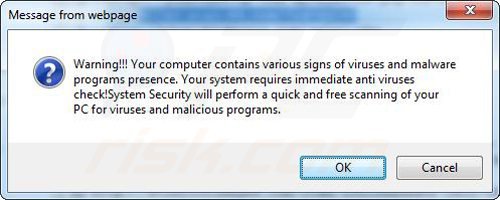
Computer users who are dealing with a rogue security software shouldn't buy it's full version. By paying for a license key of a fake antivirus program users would send their money and banking information to cyber criminals. Users who have already entered their credit card number (or other sensitive information) when asked by such bogus software should inform their credit card company that they have been tricked into buying a rogue security software. Screenshot of a web page used to lure computer users into paying for a non-existent full version of antivirus .net rogue and other rogue antivirus programs:
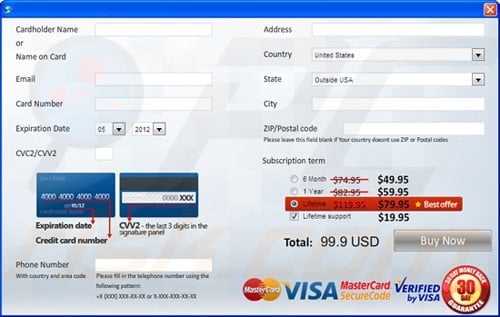
To protect your computer from antivirus .net rogue and other rogue antivirus programs users should:
- Keep their operating system and all of the installed programs up-to-date.
- Use legitimate antivirus and anti-spyware programs.
- Use caution when clicking on links in social networking websites and email messages.
- Don't trust online pop-up messages which state that your computer is infected and offers you to download security software.
Symptoms indicating that your operating system is infected with a fake antivirus program:
- Intrusive security warning pop-up messages.
- Alerts asking to upgrade to a paid version of a program to remove the supposedly detected malware.
- Slow computer performance.
- Disabled Windows updates.
- Blocked Task Manager.
- Blocked Internet browsers or inability to visit legitimate antivirus vendor websites.
If you have additional information on antivirus .net rogue or it's removal please share your knowledge in the comments section below.
Share:

Tomas Meskauskas
Expert security researcher, professional malware analyst
I am passionate about computer security and technology. I have an experience of over 10 years working in various companies related to computer technical issue solving and Internet security. I have been working as an author and editor for pcrisk.com since 2010. Follow me on Twitter and LinkedIn to stay informed about the latest online security threats.
PCrisk security portal is brought by a company RCS LT.
Joined forces of security researchers help educate computer users about the latest online security threats. More information about the company RCS LT.
Our malware removal guides are free. However, if you want to support us you can send us a donation.
DonatePCrisk security portal is brought by a company RCS LT.
Joined forces of security researchers help educate computer users about the latest online security threats. More information about the company RCS LT.
Our malware removal guides are free. However, if you want to support us you can send us a donation.
Donate
▼ Show Discussion